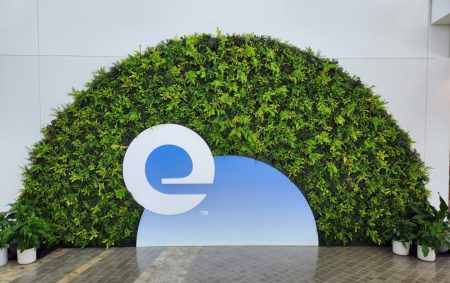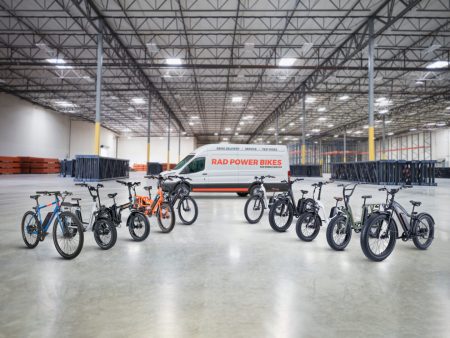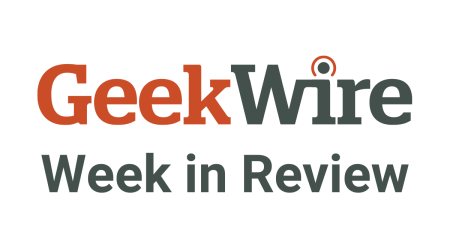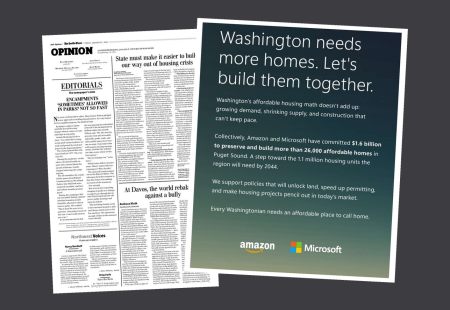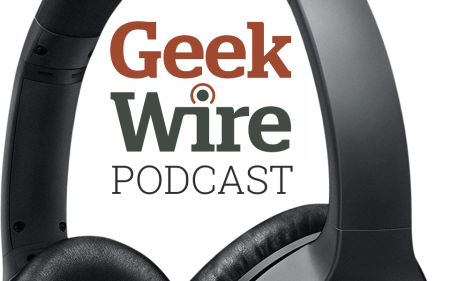Seattle’s Startup Landscape: Five Innovative Companies Charting New Territories
In the vibrant ecosystem of Seattle’s startup scene, a new cohort of promising early-stage companies is emerging, each led by visionary founders tackling challenges across diverse sectors. From reimagining home entertainment to revolutionizing dementia care, these five startups represent the innovative spirit that continues to define the Pacific Northwest’s tech community. Their journeys showcase not just technological innovation, but also the personal missions driving these entrepreneurs to create meaningful solutions to real-world problems.
Aura Labs, founded in 2024 under the leadership of CEO Josias Garcia, is bringing intelligence to smart home lighting in ways that promise to transform everyday living spaces. Garcia, who cut his teeth as an early sales member at Seattle’s smart home giant Wyze, is leveraging his industry experience to create technology that adapts to users’ habits through AI and sensors. The company’s first offering, Aura TV Backlight, aims to enhance home entertainment by creating immersive lighting environments that respond to on-screen content without requiring technical expertise from users. While the initial product serves as an entry point into homes, the larger vision suggests a comprehensive ecosystem of smart home products that could redefine our relationship with living spaces. As Aaron Fleishman of Tola Capital notes, the key question is how Aura will expand beyond this initial offering to create a full suite of immersive home entertainment technologies. The challenge for Aura Labs lies in establishing a defensible position in a competitive market where larger players could potentially integrate similar features through simple updates.
MeeBoss, set to launch in 2025, is tackling the perennial challenges of recruitment with a platform designed to make hiring more efficient and personal. Co-founders Susanna Niu, who previously launched a news platform for overseas students, and Forrest Fisher, a seasoned product manager with experience at Disney, have created a job-matching system that facilitates direct communication between employers and candidates. What sets MeeBoss apart is its focus on creating meaningful connections in the hiring process, moving beyond the often impersonal nature of traditional job applications. The company is currently offering its services to venture-backed startups for free, establishing an initial user base while refining its recommendation algorithms. Fleishman sees potential in MeeBoss’s ability to “accelerate the time for the right candidates to be matched to the right companies,” particularly if the platform can automate significant portions of the employer side of the equation. However, in a market dominated by established players and increasingly sophisticated AI-driven solutions, MeeBoss will need to evolve beyond keyword-based recommendations to create lasting value.
Nexhelm, also launching in 2025, is building an AI orchestration layer specifically designed for financial advisors. Founded by CEO Lona Yu, a former Amazon machine learning scientist specializing in fraud detection, and CTO Nolan McCafferty, who brings engineering experience from both Amazon and cloud startup Omnistrate, Nexhelm is creating AI assistants that integrate seamlessly into client meetings and workflow processes. These assistants listen to client interactions, coordinate tasks, and execute assignments across multiple platforms including CRM systems and email. Recently accepted into Seattle’s prestigious AI2 Incubator, Nexhelm is already conducting early pilots with independent financial advisors and insurance managers. The company’s focus on a specific vertical market could be both a strength and a challenge, as Fleishman observes: “My real question for Nexhelm is if the lead prospecting and deal coaching workflows need to be tailored to specific verticals like financial advisors.” The key to Nexhelm’s success may lie in navigating the complex regulatory landscape of financial services while delivering clear value that distinguishes it from more generalized AI solutions.
Remme, founded in 2025, represents a deeply personal mission for founder Grace Raper, who was inspired by her grandmother’s three decades of experience as a hospice nurse. The startup is developing a software platform focused on reminiscence therapy for older adults with dementia, using photos and conversation prompts to improve mood, boost memory, and potentially reduce medication dependency. Raper brings technical expertise from her previous role as lead software engineer at AR training startup Ghost Pacer and her experience creating SortMyShoebox, a computer vision tool for organizing family photos. Currently gathering feedback at local senior centers, Remme addresses the growing challenge of dementia care in an aging population. Fleishman acknowledges the potential impact: “Remme’s reminiscence therapy sounds like it could improve the quality of life for people suffering with these diseases.” The company faces the critical challenge of demonstrating sustained engagement and measurable clinical outcomes in a field where well-intentioned technologies often fail to gain lasting adoption. However, if successful, Remme could represent a meaningful advancement in improving quality of life for dementia patients while strengthening family connections.
Talvita, also set to launch in 2025, is reimagining talent management for the AI era with a platform designed to track and evaluate employee impact in roles characterized by high ambiguity. Led by CEO Caitlin Rollman and co-founder Kate Wilson, both former senior directors at Seattle sales software startup Highspot, Talvita aims to provide senior leaders with meaningful insights that traditional performance reviews often fail to capture. The bootstrapped startup is planning a limited access MVP release as it refines its approach to unlocking employee potential. As Fleishman points out, “Performance review management is definitely a crowded market,” which means Talvita will need to clearly differentiate itself from both established HR platforms and successful startups like Lattice. The company’s AI-native approach could provide this differentiation, particularly if it can effectively address the emerging challenge of evaluating AI agents within organizations. However, the path forward isn’t easy—building trust in the HR space requires overcoming skepticism born from previous disappointing experiences with similar platforms, and doing so while bootstrapped adds another layer of difficulty to scaling in an enterprise market.
These five Seattle startups—Aura Labs, MeeBoss, Nexhelm, Remme, and Talvita—represent diverse approaches to solving meaningful problems across smart home technology, hiring, financial services, healthcare, and talent management. Each faces unique challenges in their respective markets, from establishing defensible positions against larger competitors to proving clinical efficacy or differentiating in crowded spaces. Yet they also embody the innovative spirit that continues to make Seattle a fertile ground for entrepreneurship, bringing fresh perspectives and technological approaches to persistent human and business challenges. As they navigate the difficult early stages of company building, these founders are not just developing products—they’re creating new possibilities that could reshape how we live, work, and care for one another.






